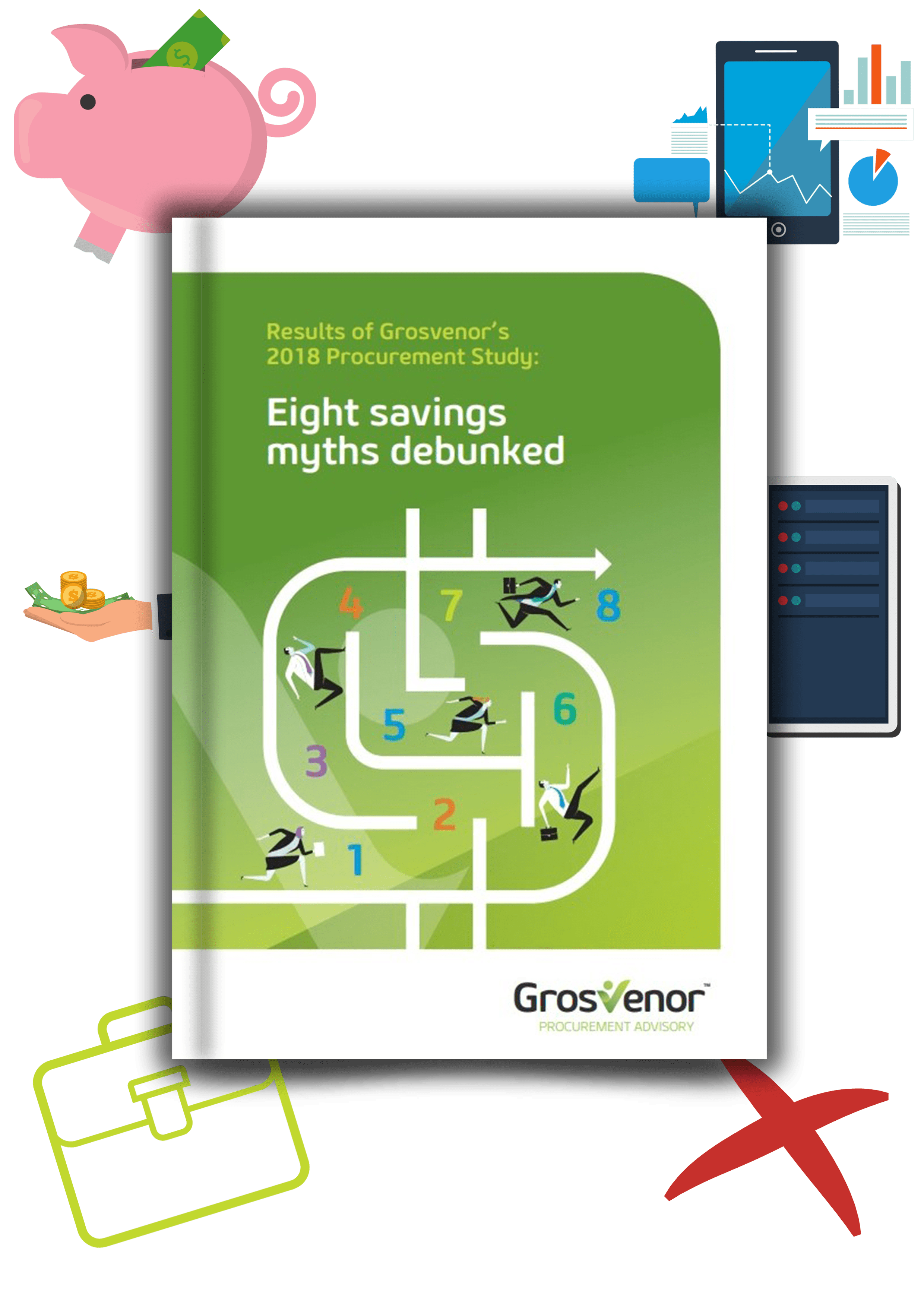Predicting cost savings in Property, ICT and Operations Sectors

In my last article, ‘Is there a pot of gold hidden in your procurement spend?‘ I mentioned that one of the goals of our 2018 Procurement Study was to unlock a set of indicators that could be used to identify which categories, supplier and contracts are likely to yield the greatest opportunities to reduce spend.
In the process we discovered that all seven indicators are useful for this purpose. And, for the most part, they are common sense. However, once our data was reconciled against them, we clearly saw that the influence of some indicators over spend was somewhat counter-intuitive.
There’s a gap created between what we expected or assumed to be true, versus the unexpected reality revealed by the data. It’s from these gaps that the eight myths used to title the study fell out from. It’s in these gaps that we believe procurement teams will discover new untapped savings – “pots of gold”.
To recap, the seven indicators we identified are:
- Your importance as a customer
How important is your business to the supplier? - Gold plated or fit for purpose?
Are the goods or services you receive “fit-for-purpose” or “gold-plated”? - Performance of current supplier
How would you describe the performance of this supplier? - How long ago was the last market test?
Time since that last competitive quote or tender process? - Number of suppliers currently used
Is a single supplier delivering these services across all business units? - Changes in demand patterns
Will you be buying more/less/the same amount of this service going forward? - Number of suppliers in the market
Are there many other suppliers that could also supply these services?
In this article, I wanted to highlight further findings from the study that deal with the impact that these indicators have between categories of spend.
We did a deep dive into the results of three categories – Property, ICT and Operations.
The savings indicators that matter in the Property Category
Organisations were found to be able to drive higher savings in this category (which includes services around Property, Corporate Real Estate and Facilities Management) if they:
- Currently use a large number of suppliers, e.g. across geographies, business units or sub-services
- For which the market was last tested more than five years ago; and
- For which many suppliers exist in the market.
The table below summarises the results from the study:
| Indicator | Value | Average Savings achieved |
| Number of suppliers currently used | Single Supplier | 11.3% |
| Large number of suppliers | 15.0% | |
| How long ago was the last market test | Between 1 and 5 years | 10.6% |
| Longer than 5 years | 15.0% | |
| Number of suppliers in the market? | Small number | 13.0% |
| Large number | 15.3% |
The savings indicators that matter in the ICT Category
If you are buying goods and services that are related to Information and Communication Technologies, you might want to market-test your current spend for services that:
- currently perform below expectations; and
- for which many suppliers exist in the market.
Those respondents that have addressed spend with these characteristics drove higher savings than those organisations focussing elsewhere. The average savings achieved are summarised in the table below:
| Indicator | Value | Average Savings achieved |
| Performance of current supplier | Exceed expectations | 8.8% |
| Below expectations | 18.4% | |
| Number of suppliers in the market? | Small number | 9.8% |
| Large number | 15.9% |
The savings indicators that matter in the Operations Category
If you are buying goods and services that are related to Machinery, Chemicals, Electrical Equipment, Tools, Components or Materials, you might want to market-test your current spend if:
- the market was last tested more than five years ago; and
- you feel like current goods or services are gold-plated rather than fit-for-purpose.
Those respondents that have addressed spend with these characteristics drove higher savings than those organisations focussing elsewhere.
| Indicator | Value | Average Savings achieved |
| How long ago was the last market tested? | Between 1 and 5 years | 8.7% |
| Longer than 5 years | 12.6% | |
| Gold plated or fit for purpose? | Fit for purpose | 8.9% |
| Gold plated | 12.0% |
Wrap Up
In the study report (see link for download below), we delve a bit further to outline real world examples within each category, that describe different approaches used by the study contributors to generate these savings in the context of their own businesses.
How do you apply this information to your own business?
There are no silver bullets here, prescriptive solutions and five point plans to create savings. Instead, use the indicators to help prioritise procurement initiatives within your own context and uncover some gold in places you perhaps wouldn’t have looked.
Our procurement advisory team at Grosvenor has access to deep expertise across all categories.
If you need help translating these indicators into your own business or require advice and support on your next steps, I’d like to offer you an obligation free, in-person “Situation Analysis” consultation. You can find out more on our website here.








 We are all about sharing our expertise to help you and your organisation be the best it can be.
We are all about sharing our expertise to help you and your organisation be the best it can be.